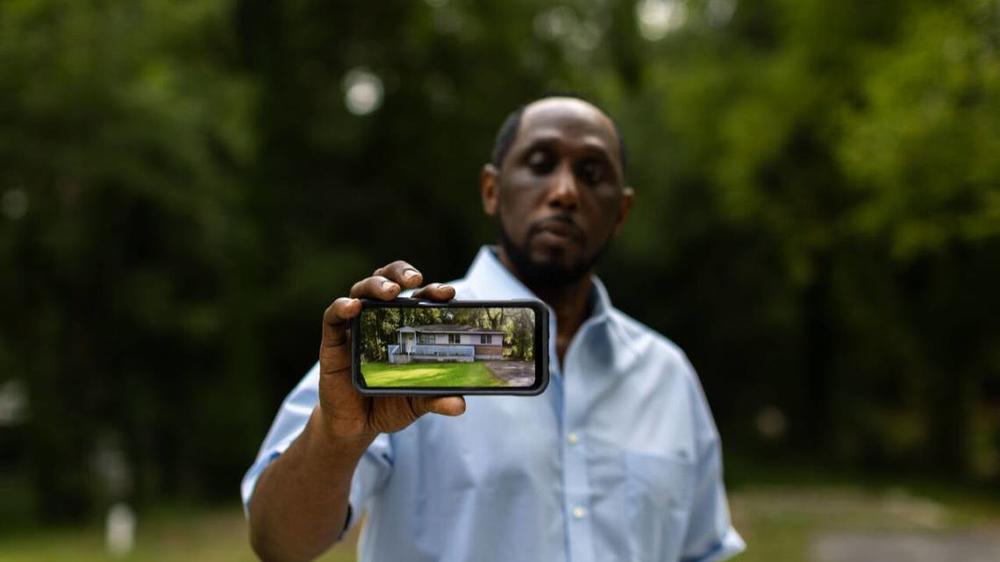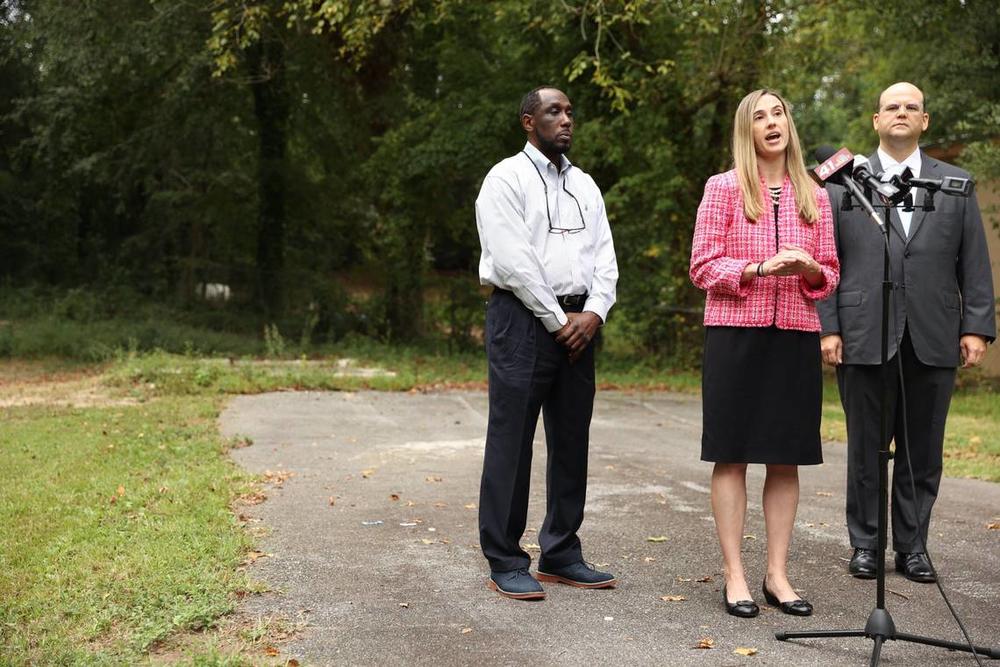
Caption
Eric Arnold, owner of 1151 Sunnydale Drive, holds a phone with a picture of what the house he was renovating used to look like before it got demolished by Macon-Bibb County. He’s filing a lawsuit against them for “unconstitutionally” destroying his house.
Credit: Institute for Justice


